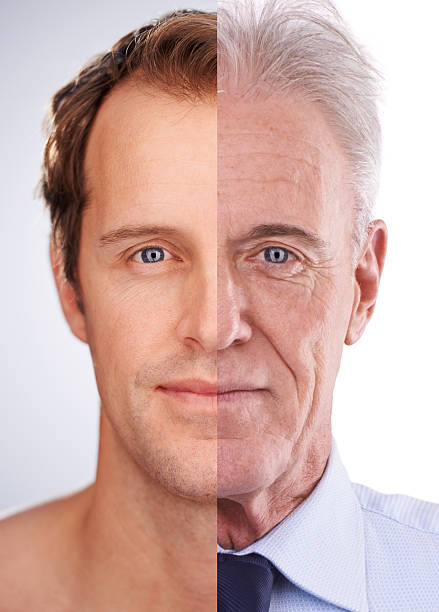
Aging is an inevitable part of life, and it affects everyone differently. For men, the aging process typically starts around the age of 40 and progresses gradually. It involves physiological, psychological, and social changes that can influence various aspects of life.
- Hormonal Changes: Testosterone levels tend to decrease with age, leading to a range of physical changes such as reduced muscle mass, increased body fat, and decreased bone density.
- Decreased Metabolism: Aging can slow down metabolism, making it harder to maintain a healthy weight.
- Cardiovascular Health: The risk of cardiovascular diseases, such as heart disease and high blood pressure, increases with age.
- Prostate Health: Prostate enlargement and related issues, such as frequent urination, may become more common in older men.
- Vision and Hearing: Age-related changes in vision and hearing can affect an aging male's quality of life.
- Mental Health: Some men may experience mood changes, including an increased risk of depression and anxiety.
- Self-esteem and Identity: Aging can bring challenges to self-image and identity as men adjust to physical changes and societal expectations.
- Cognitive Abilities: While cognitive decline is not inevitable, some men may experience changes in memory and processing speed as they age.
- Retirement and Purpose: Transitioning into retirement can impact an individual's sense of purpose and overall well-being.
To maintain a healthy and fulfilling life as an aging male, it is crucial to adopt lifestyle habits that promote overall well-being. The following sections highlight key areas to focus on:
- Exercise and Fitness Regular physical activity plays a vital role in maintaining physical and mental health.
- Nutrition and Diet A well-balanced diet rich in fruits, vegetables, whole grains, lean proteins, and healthy fats is essential for optimal health.
- Sleep and Rest Quality sleep is crucial for overall well-being.
- Managing Stress Stress management techniques, such as mindfulness meditation, deep breathing exercises, and engaging in hobbies or activities that bring joy, can help reduce stress levels.
- Maintaining Mental Agility Engaging in activities that challenge the mind, such as puzzles, reading, or learning a new skill, can help maintain cognitive function and promote mental agility.
- Regular Health Check-ups Routine check-ups with healthcare professionals allow for early detection and management of potential health issues
- Sexual Health and Intimacy Open communication with partners and healthcare professionals can help address any concerns related to sexual health
- Building Strong Relationships Maintaining meaningful relationships with family, friends, and loved ones provides emotional support and promotes overall well-being.
- Seeking Support and Social Connections Joining support groups or participating in community activities tailored for aging males can provide valuable insights, camaraderie, and emotional support during this stage of life.
- Maintaining a Positive Outlook Maintaining a positive mindset can have a significant impact on overall well-being.
FAQ's
Services
- Kidney Stone
- Kidney Transplant Evalution & Surgery
- BHP
- Uro-Oncology
- Kidney Cancer
- Penis Cancer
- Bladder Cancer
- Prostate Cancer
- Testicular Cancer
- Urethral cancer
- Sexual dysfunction & Male infertility
- Erectile dysfunction and Impotence
- Andrology
- Robotic Surgery
- RIRS
- Blood in Urine
- Urinary Tract Infection
- Urinary Incontinence
- Prostate Gland
- Pediatric Urology & Laparoscopy
- Aging Male
- Female Urology
- Penis Enlargement
- Varicocele
- A-V Fistula & Ralated Vascular Access Surgery
